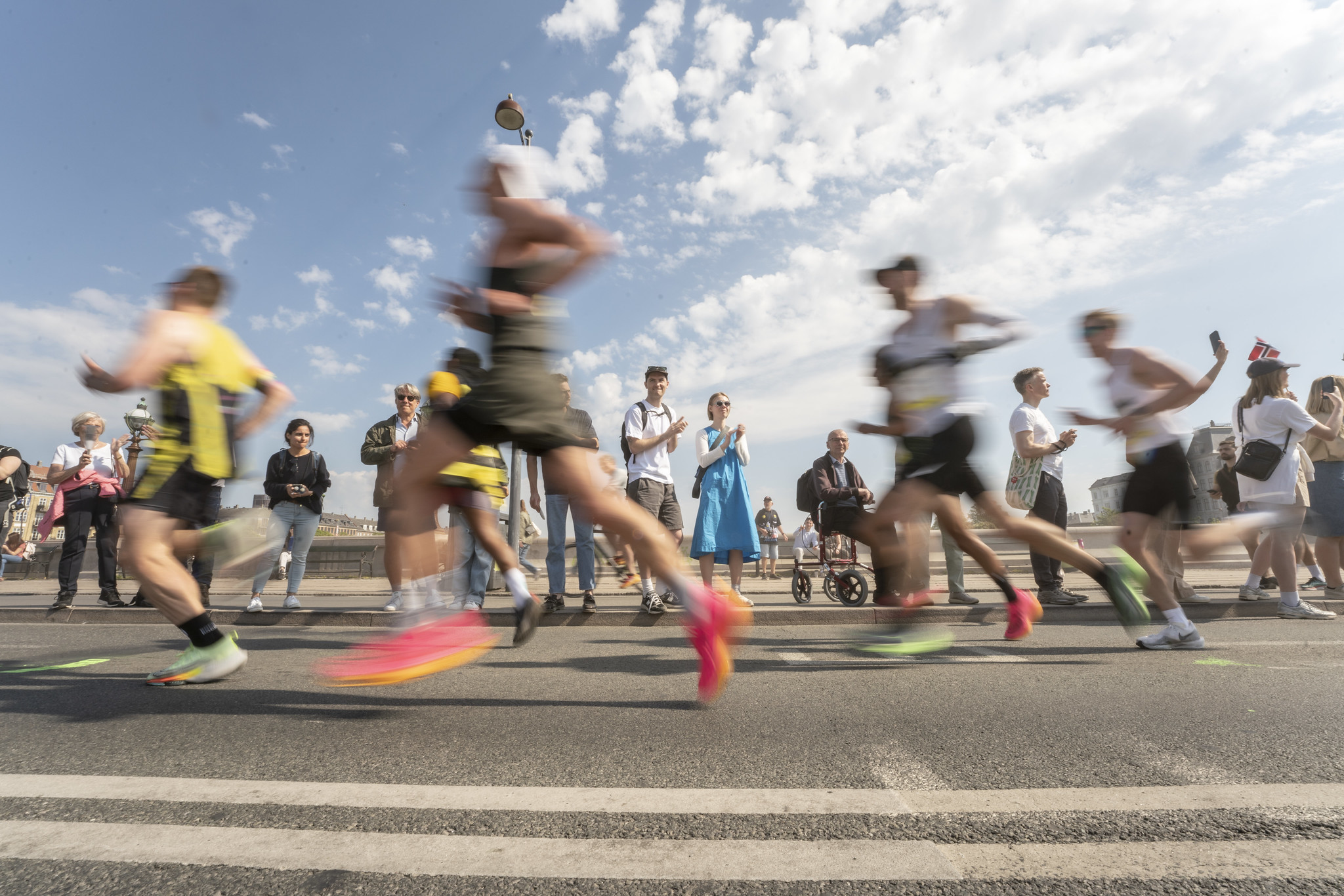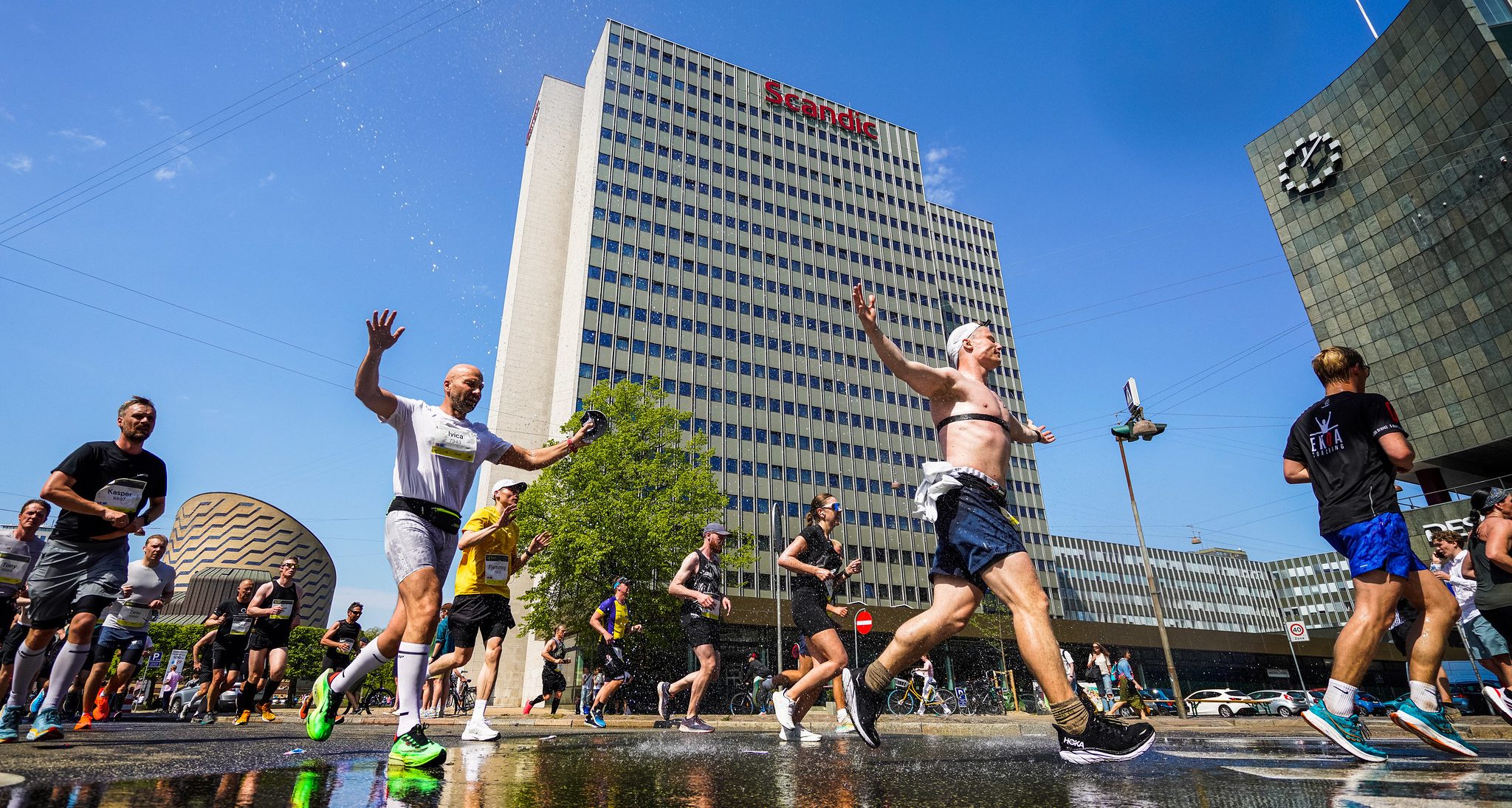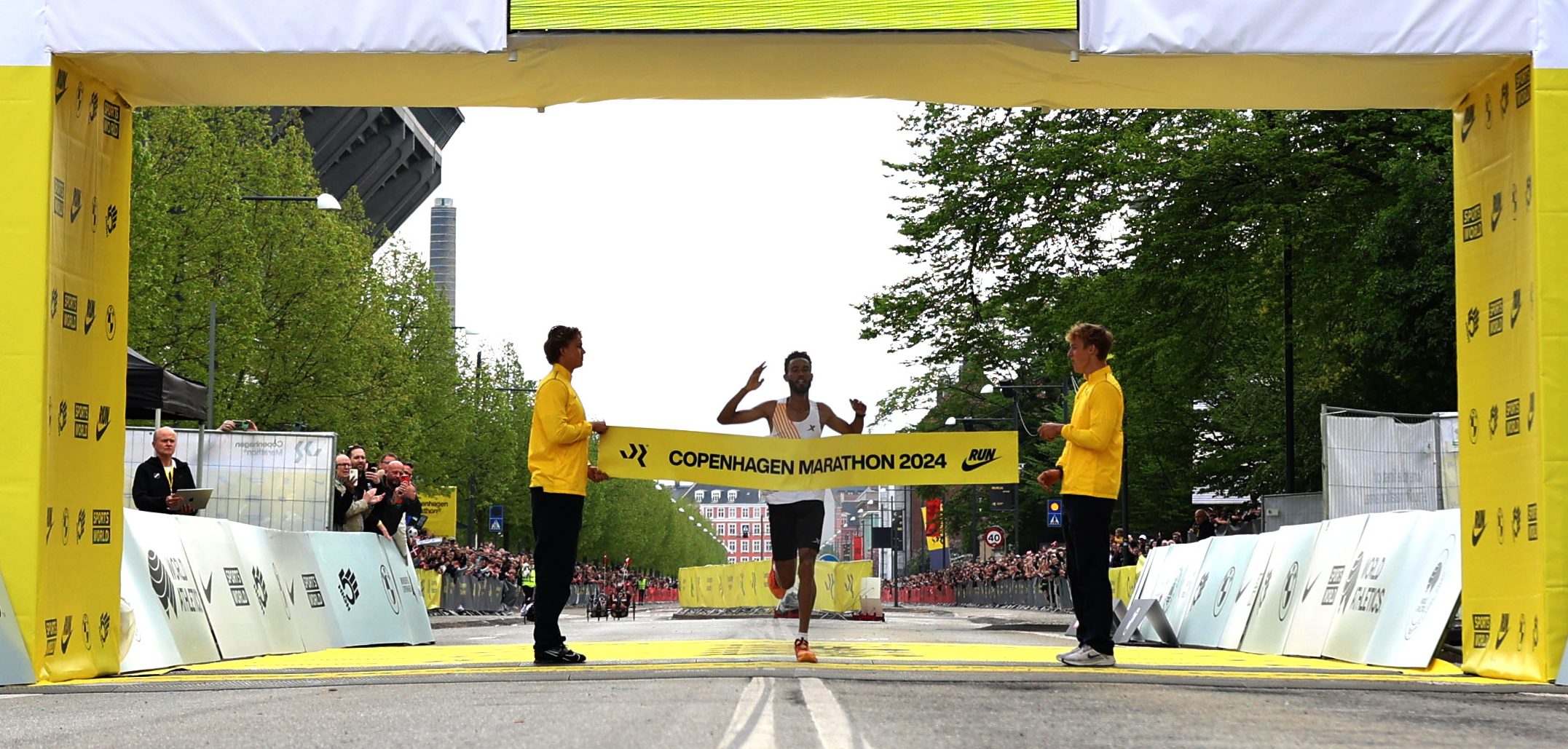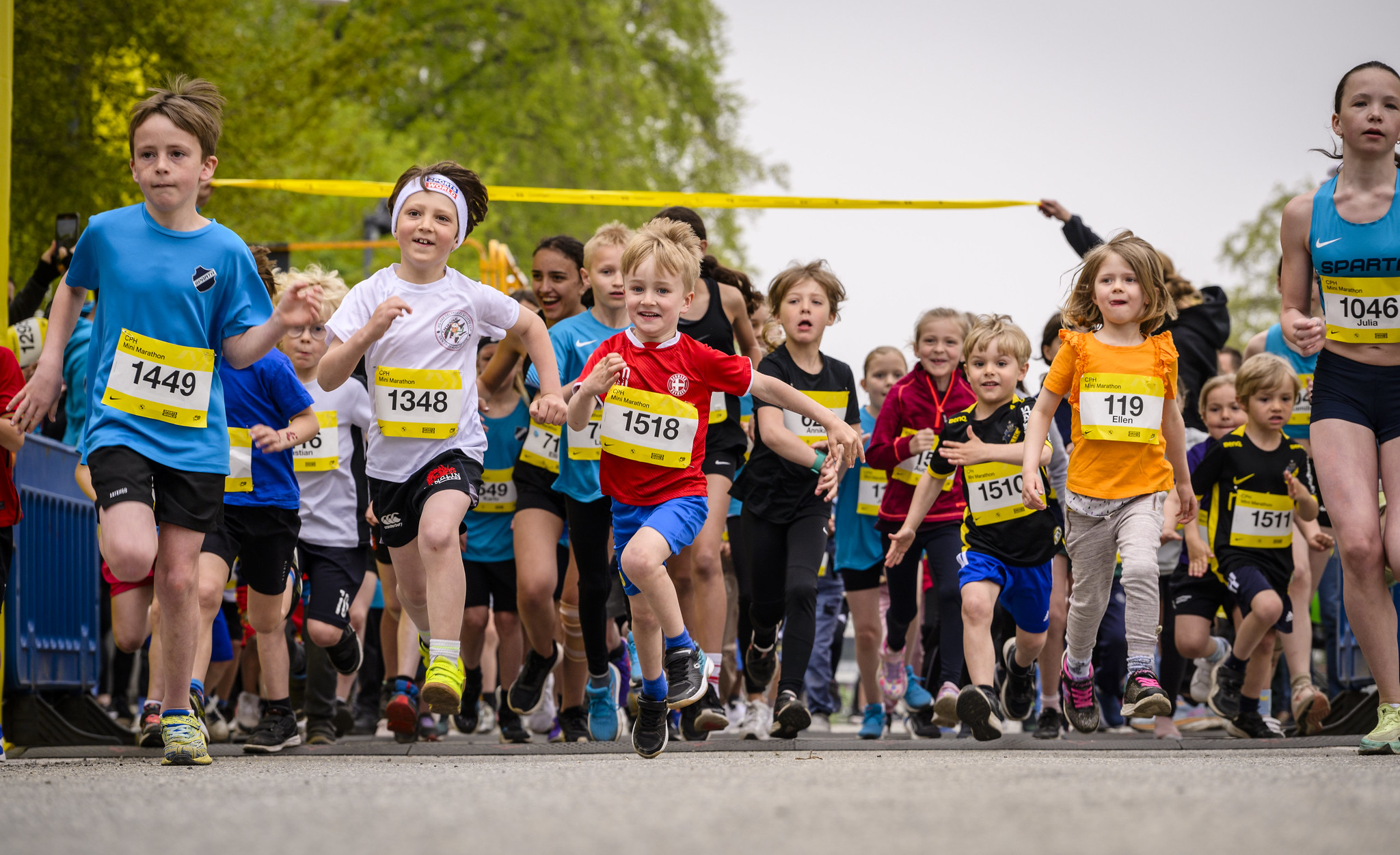
20 tips to get ready for the marathon
29. April 2024
Food, sleep and energy. There are many buttons to push when preparing your body for a marathon. That’s why we asked two experts from Team Denmark, nutritionist Pernille Krogh Björklund and doctor Mads Münster Karlsson, to share their knowledge.
They advise some of Denmark’s best elite athletes on a daily basis, but in this article they give 20 marathon tips that everyone can use before tackling the 42.195 kilometers.
The day before the marathon
- Consider extra salting of food for main meals.
- Pay attention to fluid intake and consume significantly more fluid than usual, without overdoing it, of course. You don’t want to flush out the important salts and minerals in your body.
- Eat a carbohydrate-rich diet during the day (cereals, oatmeal, muesli, cornflakes, various types of bread (mainly light), pasta, noodles, rice, potatoes).
- Cut back on fiber, whole grains, protein and fat. For main meals, aim for at least half of the meal to consist of one or more different carbohydrate sources. Prioritize simple, easily absorbable carbohydrate sources.
- Stick to simple cooking. Avoid experimenting with foods you haven’t tried before. Also avoid very hot or spicy foods and pay attention to the preparation and cooking of food.
- Get extra carbohydrates through snacks (bread, crackers, granola bars, fruit, dried fruit, sweets, juices, juices and the like).
- Pay attention to the weather forecast and plan your clothing accordingly. Avoid running in new shoes or other gear that you haven’t tried out before race day. Similarly, avoid consuming race day sports products (such as bars and gels) that you haven’t tried before.
- Get an overview of the course and refreshment zones in advance so you know what to expect. Also, plan your transportation to the start area so that it doesn’t stress you out in the morning.
The morning of the race day
- Approximately 3 hours before the race start, eat a carbohydrate-rich breakfast (e.g. light bread/buns with jam, honey, Nutella or similar, cornflakes, oatmeal/porridge, yogurt with muesli or similar).
- Have a breakfast that you have good experience with from long training rides or other races and avoid experimenting on the day.
- Drink at least 1L of liquid (water, juice, juice, sports drink) before heading to the start area. If it’s going to be a hot day, it’s a good idea to take extra fluids. For example, bring a 0.5L bottle of liquid (water, juice, juice, sports drink) to the start area.

Before the start
- Approximately 15-30 minutes before the start, it’s a good idea to eat a banana, muesli bar, energy bar, gel, bun with chocolate spread/jam/honey or similar.
- Consume the liquid in the hour leading up to the start – preferably small sips at a time.
- If you haven’t used the toilet from home, it may be a good idea to do so before the start.
During the race
- Take a combination of water and energy (gels, energy drinks, bananas) every 20-30 minutes via the hydration stations. There will be 12 refreshment zones (plus a RedBull Zone) along the course – all located on the right side of the road. If possible, avoid stopping at the first part of the zone. Choose the last part and avoid stopping completely.
- If it is a very hot day (more than 18-20 degrees), it is a good idea to bring salt tablets/salt sticks that can be consumed regularly along the way.
- Feel free to drink more than you need and avoid skipping depots if you don’t feel like it.
After the race
- Drink 1L of fluid within the first hour after the finish and continue rehydrating for the rest of the day.
- Consume a carbohydrate-rich diet in the hours after the race to aid the recovery process.
- Prioritize rest and recovery in the days after the marathon.

